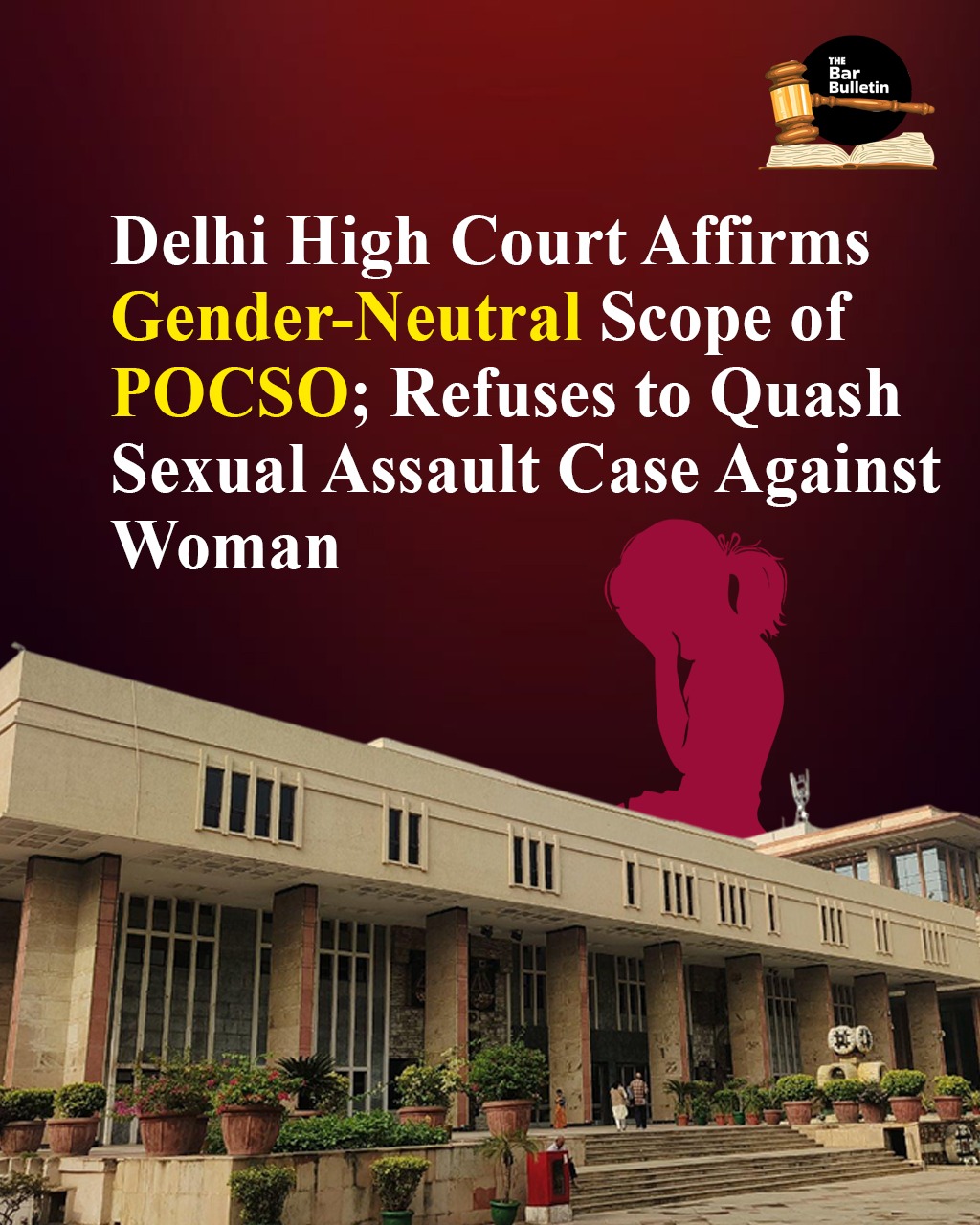The Delhi High Court addressed core issues concerning the interpretation of the Protection of Children from Sexual Offences (POCSO) Act, 2012, in a rare case where a woman faced charges under Sections 4 and 6 of the Act for alleged sexual assault against a minor boy. The petitioner sought quashing of the FIR and the charge sheet, contending the Act’s provisions are not gender neutral and cannot be applied to a female accused.
The complainant’s minor son, aged approximately 13 during the alleged incidents in 2020, frequented the petitioner’s residence under the pretext of assisting with art-related activities. The complaint detailed repeated instances of sexual assault by the petitioner, including forcible acts involving penetration, with the victim initially too traumatized and fearful to disclose the abuse. The family, residing in Bangalore at the time, moved abroad for several years before the victim disclosed the abuse and the complaint was registered in 2024.
The petitioner argued that Sections 4 and 6 of the POCSO Act, which define penetrative sexual assault and aggravated penetrative sexual assault respectively, refer specifically to male perpetrators capable of penetration and thus the charges could not lie against a woman. Additionally, the counsel cited the delay in filing the complaint and questioned the absence of a potency test for the victim as grounds for quashing the proceedings.
The prosecution and the complainant emphasized the gender-neutral language and the legislative intent behind the POCSO Act to protect all children irrespective of gender. The complainant reiterated that delayed reporting of sexual offences by children is common due to trauma and fear, thus the delay could not vitiate the case. The prosecution underlined that the Act, interpreting its provisions in conjunction with Section 8 of the Indian Penal Code, treats pronouns such as “he” as gender-neutral.
The Court examined the statutory framework, including the 2019 amendments to the POCSO Act, object and reasons of the legislation, and key judicial precedents, notably the Delhi High Court’s own ruling in Sundari Gautam vs State of NCT of Delhi[1], affirming the Act’s gender neutrality.
The Court held that the Act’s provision of sexual assault under Sections 3, 4, 5, and 6 begins with the term “person” and includes complex definitions that encompass acts by any gender. The specificity in clauses requiring penetration by a penis does not exclude other forms of penetrative sexual assault or acts where the accused induces the child to commit such acts. The Court further held that the Act extends protection to every child and imposes accountability on all offenders, regardless of gender.
Regarding the delay in lodging the FIR, the Court found the delay to be justifiable and insufficient in itself to quash the proceedings. On the potency test contention, it referred to established precedents to rule that potency tests are not mandatory unless impotency is pleaded as a defence.
Accordingly, the petition was dismissed, emphasizing that the matter required full trial to determine the veracity of allegations. The judgment reinforced the inclusive, protective scope of the POCSO Act and dispelled misconceptions about its application concerning female accused persons.
Cases relied on:
1. Sundari Gautam vs State of NCT of Delhi, 2024 SCC OnLine Del 5412
2. Shreekant Sharma vs State of West Bengal, 2023 SCC OnLine Cal 1961
3. Satpal Singh vs State of Haryana, (2010) 8 SCC 714
4. State of Himachal Pradesh vs Prem Singh, (2009) 1 SCC 420
5. State of Maharashtra vs Savala Sagu, 1997 Cri LJ 786
6. X vs State of Kerala, Crl. A. No. 649 of 2021, decided on 01.07.2022
7. Tulsidas Kanolkar vs State of Goa, (2003) 8 SCC 590
8. Kajendran J. vs Superintendent of Police, 2024 SCC OnLine Mad 3319
Appearances:
Ashok, Adv., with Smt Monika H.B., Adv. for Respondent No. 2.
For the Petitioner: Sri Hashmath Pasha, Sr. Adv., with Sri Kariappa N.A., Adv.
For the Respondents: Sri B.N. Jagadeesha, Additional State Public Prosecutor for the Respondent-State; Sri G.V.
[1] 2024 SCC OnLine Del 5412

